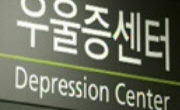The number of young adult single person households is increasing, and their exposure to housing insecurity can lead to mental health issues, such as depression. While previous studies have focused on housing conditions, and cost burdens. This study ex...
http://chineseinput.net/에서 pinyin(병음)방식으로 중국어를 변환할 수 있습니다.
변환된 중국어를 복사하여 사용하시면 됩니다.
- 中文 을 입력하시려면 zhongwen을 입력하시고 space를누르시면됩니다.
- 北京 을 입력하시려면 beijing을 입력하시고 space를 누르시면 됩니다.

청년 1인 가구의 주거 불안이 우울 증상에 미치는 영향 -임대인과의 갈등 관계와 주거 안전 인식에 대한 논의를 중심으로- = The Impact of Housing Insecurity on Depression in Young Adult Sing le Person Households - Focusing on Conflict with Landlords and Perceptions of Housing Safety -
한글로보기https://www.riss.kr/link?id=A109541994
- 저자
- 발행기관
- 학술지명
- 권호사항
-
발행연도
2024
-
작성언어
Korean
- 주제어
-
등재정보
KCI등재
-
자료형태
학술저널
- 발행기관 URL
-
수록면
135-158(24쪽)
- DOI식별코드
- 제공처
-
0
상세조회 -
0
다운로드
부가정보
다국어 초록 (Multilingual Abstract)
The number of young adult single person households is increasing, and their exposure to housing insecurity can lead to mental health issues, such as depression. While previous studies have focused on housing conditions, and cost burdens. This study extends the scope to include conflicts with landlords, and perceived housing security. Gender differences were also examined, a female young adult single-person household is more likely to experience housing insecurity. The study included 1,691 females and 1,779 males who are young adult single renters from the 2022 Youth Life Survey. Analysis using Pearson chi-square and independent samples t-tests revealed that female households paid higher deposits, had more depressive symptoms, and were less satisfied with housing security. On the other hand, male households were in relatively worse housing conditions. Binary logistic regression analysis showed that depression in female households increased landlord conflicts, whereas depression in male households was not affected by any housing insecurities. Based on these findings this study recommends expanding and promoting support for young single-person households in housing disputes. Evidence also supports educating landlords on their legal responsibilities to prevent and alleviate depression among young women living alone.
동일학술지(권/호) 다른 논문
-
아동⋅청소년기의 부정적 경험이 은둔 청년 발생에 미치는 영향 -우울의 매개효과를 중심으로-
- 한국사회복지정책학회
- 호수지
- 2024
- KCI등재
-
- 한국사회복지정책학회
- 장동호
- 2024
- KCI등재
-
‘중년 1인가구’ 연구에 대한 체계적 문헌고찰 -국내 양적연구(2017∼2023년)를 중심으로-
- 한국사회복지정책학회
- 이지아
- 2024
- KCI등재
-
복지국가의 제도적 맥락은 자동화 위험에 따른 정책선호를 어떻게 조절하는가? -정형화된 업무 강도(RTI)와 사회정책 선호의 국가간 비교분석-
- 한국사회복지정책학회
- 백승호
- 2024
- KCI등재




 DBpia
DBpia






